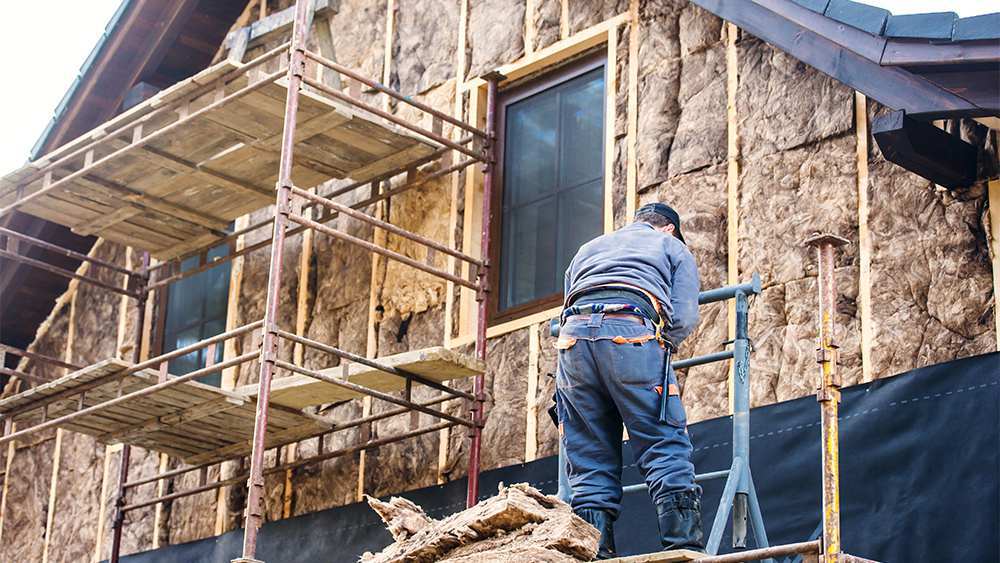Aixuze Insights
Explore the latest trends and insights on diverse topics.
Save Your Cash and Keep the Chill Out with Home Insulation Secrets
Unlock the secrets to saving cash and staying cozy! Discover essential home insulation tips that keep the chill out and your wallet happy.
5 Essential Home Insulation Tips to Save Money This Winter
As winter approaches, ensuring your home is properly insulated is crucial for saving money on energy bills. Here are 5 essential home insulation tips that can help maintain a comfortable temperature while keeping your heating costs down:
- Seal Gaps and Cracks: Inspect your home for any gaps around windows, doors, and electrical outlets. Sealing these leaks with weather stripping or caulk can significantly reduce heat loss. For more information, check out Energy.gov.
- Insulate Your Attic: Your attic is a major source of heat loss. Adding insulation to this area can keep your home warmer and reduce heating expenses. A good guideline is to aim for an R-value of 30 to 60, depending on your climate zone.
3. Choose the Right Insulation: There are various types of insulation available, including fiberglass, foam, and cellulose. Each type has its own R-value and benefits, so consider your specific needs and consult with a professional if necessary. You can find detailed comparisons at Energy Saver.
- Insulate Pipes and Ducts: Don’t forget about insulating your plumbing and ductwork. Exposed pipes in cold areas can freeze, while poorly insulated ducts can lead to significant energy loss. Insulating these systems helps maintain warmth and saves you money.
- Consider Professional Assessment: If you're unsure about your home’s insulation needs, consider hiring a professional to perform an energy audit. They can pinpoint areas for improvement and recommend effective insulation strategies. More on this can be found at ENERGY STAR.

How Does Insulation Improve Energy Efficiency in Your Home?
Insulation plays a crucial role in improving energy efficiency in your home by reducing heat transfer between the interior and exterior. This is achieved through various materials, such as fiberglass, foam, and cellulose, which create a barrier that slows the movement of heat. According to the U.S. Environmental Protection Agency, proper insulation can significantly lower your heating and cooling costs by as much as 20%. By minimizing energy wastage, you not only save on utility bills, but also contribute to a more sustainable environment.
Moreover, effective insulation helps maintain a consistent temperature throughout your home, enhancing comfort levels year-round. During winter, insulated walls and attics keep warmth inside, while in summer, they prevent heat from penetrating the living space. In fact, Energy.gov recommends evaluating your insulation levels, as upgrading to modern materials can lead to substantial savings and improved energy efficiency. Therefore, investing in quality insulation is essential not just for comfort, but also for the overall energy performance of your home.
The Hidden Benefits of Proper Home Insulation: Save Cash and Stay Cozy
When it comes to maintaining a comfortable living environment, proper home insulation plays a crucial role. Insulation not only helps keep your home warm in the winter and cool in the summer, but it also leads to significant long-term financial savings. By reducing the workload on heating and cooling systems, homeowners can expect to see a decrease in energy bills. According to Energy.gov, effective insulation can save homeowners up to 20% on their annual energy costs, making it a smart investment for any property.
Furthermore, proper home insulation contributes to a quieter living space by minimizing outside noise pollution. This can be particularly beneficial in urban areas where traffic and street noises can be a constant distraction. Additionally, having a well-insulated home can enhance indoor air quality by reducing drafts and preventing moisture buildup, which can lead to mold growth. For more information on how insulation improves indoor environments, visit EPA's Indoor airPLUS. In essence, investing in quality insulation not only provides cost savings but also promotes overall wellbeing in your home.